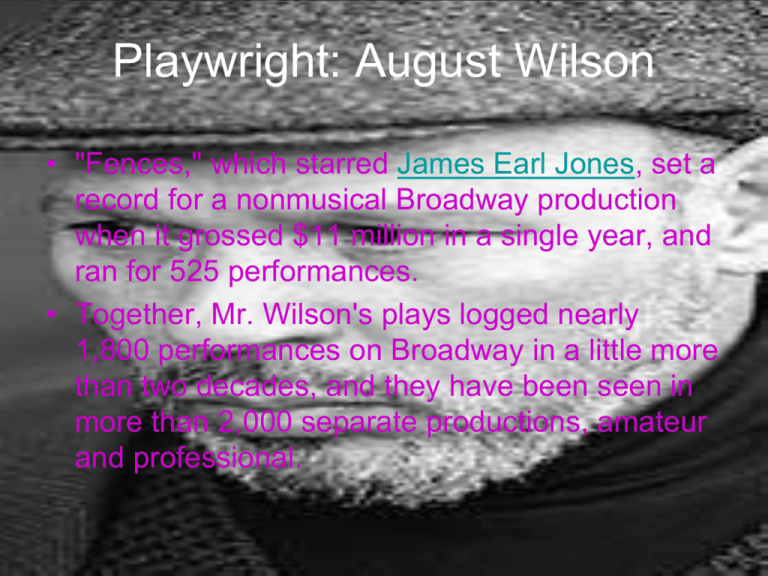

What matters most is the characters, in all their richness and humor, and what is incidental, offhand, what occurs in the interstices of the story. While the tension between Troy and Cory may be the most important element of the play, it is only one among several. There is, by the way, an actual fence, which he and the younger son are building for the wife, who seems to want to hold in what she cherishes most. He even feels fenced in, it turns out, by his happy marriage to a woman he loves, and he has an affair with a much younger woman, impairing his happiness for the rest of his life. He is constricted by his feelings, a mixture of bitter jealousy and protectiveness, about his younger son, Cory, who has been recruited for a football scholarship at a nearby college afraid that the boy will be hurt as he has been in the world of sports, and beside himself with envy, he refuses to let the boy accept it. He was constricted by his poverty until his brother, who was left permanently brain-damaged by a head wound during the war, was given a payoff by the government, which Troy used to buy the shabby house. Because he is black, he is not allowed to drive the garbage truck but must always work behind, lifting and dumping (until he complains to the union and wins). There is no aspect of his life in which he does not feel constricted-fenced in-and in James Earl Jones’ towering performance one can almost see him bursting at the seams. A baseball hangs on a cord in the back yard of his shabby house in a poor section of some Northern city, and he whacks away at it angrily throughout the action. The time is the late nineteen-fifties-post-Jackie Robinson but too late for Troy.


Once a baseball player of professional ability, he was prevented by his color from playing in the major leagues. The hero of “Fences,” and hero he is indeed-a flawed giant-is a garbageman of fifty-six named Troy Maxson. It is, incidentally, one of a series of plays by this dramatist about blacks in the North, decade by decade, in the twentieth century two of the plays have now been done here, and two others are waiting in the wings. Wilson’s “Ma Rainey’s Black Bottom,” it is just as powerful, and I think even richer. Although it is entirely different in form and feeling from Mr. Last week, it opened on Broadway, at the Forty-sixth Street, trimmed and shaped, in a triumphant production under the direction of Lloyd Richards, who also collaborated on the text. As I remember, I didn’t say much except “Leave it alone, for now.” In that early form, it ran well over four hours.

When August Wilson’s “Fences” was first done, at the O’Neill Playwrights’ Conference, in Waterford, Connecticut, four years ago, I acted as a kind of adviser on the script during rehearsals.


 0 kommentar(er)
0 kommentar(er)
